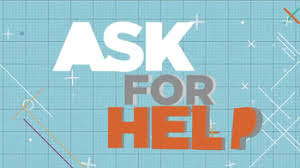Ask for help. That is the suicide prevention message. When you are in trouble, ask for help.
And I am not going to suggest otherwise. That's about the only way you will get help. The pain that you are in, the scary thoughts that you are having, there is a way out that is a way through, that leaves you alive on the other side. The way begins when you tell somebody, when you ask for help.
That, alas, is not the end of the story. This week we watched as a princess, a celebrity, somebody who lived in a multimillion dollar house in a multibillionaire family told her story of what happened when she asked for help.
They told her, No.











